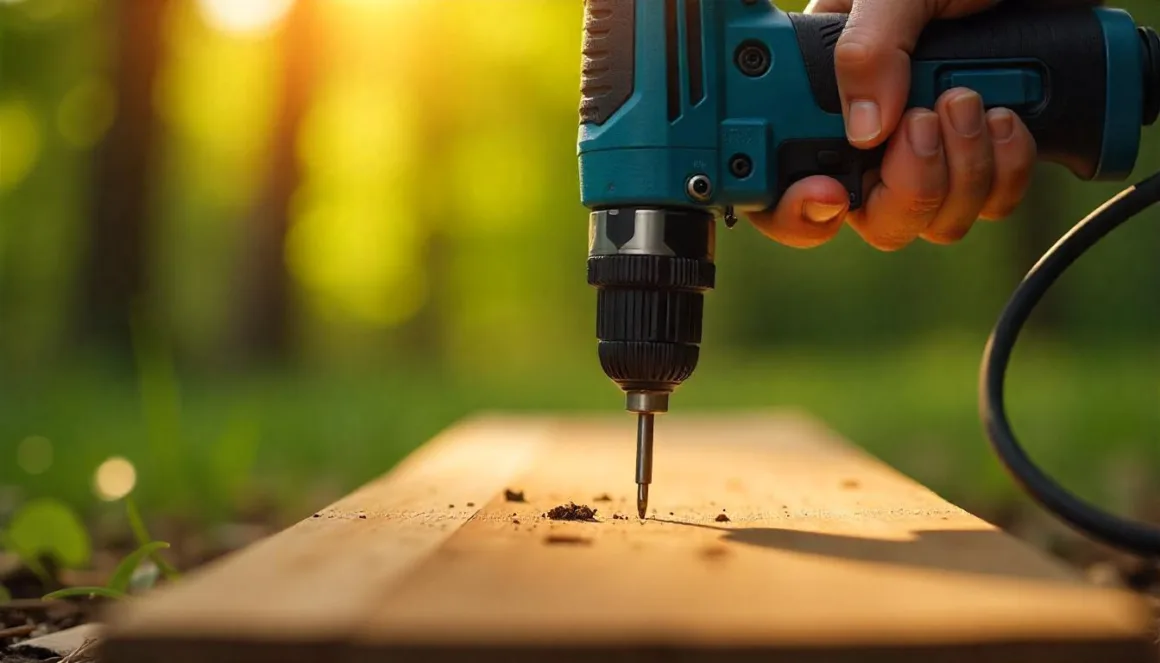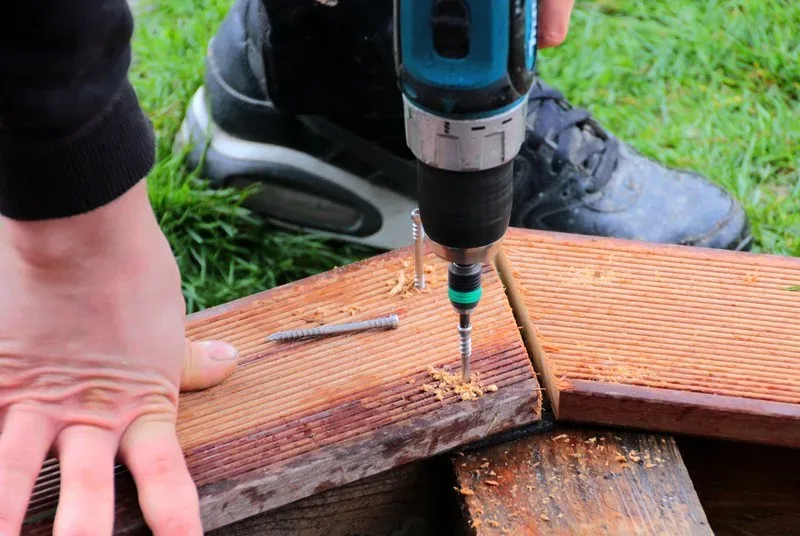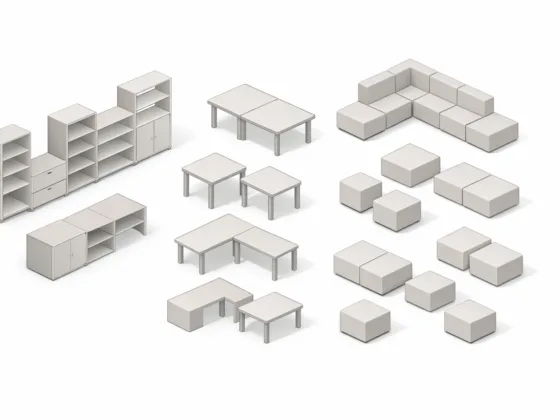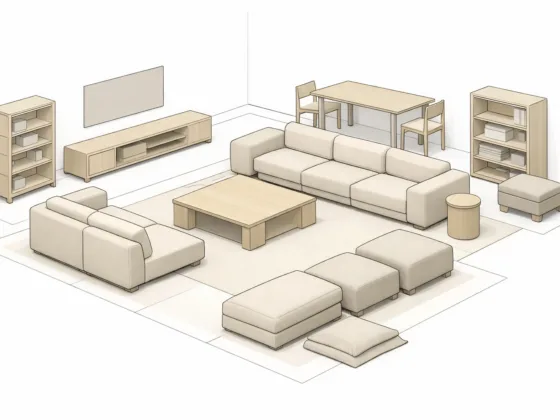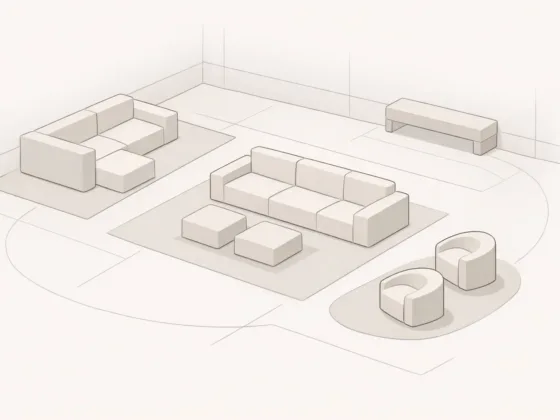If you’re searching for the best drill for woodworking but lack knowledge about which one to choose, you’ve come to the right place. This article will provide you with valuable information about the ideal woodwork drills that suit your needs.
While cordless drills are currently the most popular choice, it’s important to understand why corded drills are still recommended for woodworking.
In this article, we will explain the reasons behind using corded drills for woodworking. We’ll discuss the advantages and disadvantages of both corded and cordless drills, as well as the key differences between them.
By gaining a clear understanding of these factors, you’ll be able to make an informed decision when it comes to purchasing and using a corded drill.
What is a Corded Drill?
A drill usually we know is the thing that is mainly used for making a hole for several purposes. It is adjusted primarily for things like guns or hammers for easy grabbing.
There are different types of drills available in terms of speed, sizes, and power. Most of the exercises are run by electricity with cords that are known as a corded drill, but now a day’s cordless drills run by battery are getting popularity.
There are several ways of using corded drills. As-
- Woodworking
- Metalworking
- Machine tool fabrication
- And also, for construction purposes
A corded drill is one that has been popular for many years and still is used from most essential works to mini home works.
It is mainly designed in pistol shape for easy holding. This type of drill runs on electric power with the help of cords and motor inside.
What are the Main Differences Between the Corded Drill and the Cordless Drill?
Weight and Portability
Corded and cordless drills differ mainly in weight and sound. Corded drills are lighter, making them easy to carry around. You can move with them easily on job sites. A lighter tool reduces user fatigue during extended use.
Cordless drills are heavier due to their battery packs. This added weight can make them harder to use for long periods. However, the trade-off is the freedom from cords.
Noise Levels
Corded drills tend to be louder as they operate. The noise comes from the motor working at a high speed. This noise may need hearing protection for the user. Cordless drills often run quieter than corded models. The difference in noise levels is good for indoor projects.
Performance
Corded drills often perform better when compared to cordless drills. They have a steady power supply from an outlet. This helps them maintain speed and torque. They provide consistent power for tougher tasks.
Why Should You Use the Corded Drill for Woodworking?
1. More Power for Tough Materials
Wood is a sturdy and durable material, so to make a hole on wood; you need a more powerful drill. The corded drill helps to make holes correctly on wood.
2. Versatility in Drilling
In a corded drill, you can make holes according to your choice as it has multiple options for drilling in a matter of the Size of holes. For woodworking, you need to make different holes for attaching or joining one wood to others.
3. Efficiency in Large Projects
Sometimes for woodworking purposes, you need to make a big hole to join one wood to others. To drill high material like wood, only corded drills will make your work easier as compared with other exercises.
4. Ideal for Deep Holes
If you want to make a significant and deep hole, this drill is an ideal choice for you, unless you already have a hammer drill which is also a great solution.
5. Features that Enhance Usability
Besides, the corded drill has amply of features that you will not find in the most cordless drill as- keyless chuck with which you can switch bit in and out with no effort or hoops to jump through, more simple reversible action, and comfortable grip that makes your drilling life easier.
6. Speed Control for Precision
It also has several power speed options from slow to speed that help you to work comfortably according to your demand.
7. Flexibility with Cracked Wood
As wood can be cracked, so you need to apply drill carefully on that to get rid of any kind of cracks or breaks. The corded drill has multiple speed options to work on wood flexibly.
8. Suitable Sizes for Woodworking
Generally, the corded drill comes with two different sizes as 3/8-inch and 1/2-inch. 1 inch’s capacity drill is ideal for use on wood.
9. Efficient Screw Installation
A wood screw is one of the essential parts of the woodwork. They make faster your woodworking process. They are used for joining woods together. There are different types of screws, but only certain types of screws are used on wood.
Corded drills are lightweight and generally have higher torque and power that is the best solution for you to set any screw or set off within a short period.
Also Read: Pocket Hole Joinery Basics for Woodworking
Advantages of Corded Drills
- More Power for Tough Jobs: Corded drills can handle more difficult tasks without worrying about the battery dying.
- Consistent Power Supply: They operate on 110 volts, providing enough power for working on hard materials like wood.
- No Battery Limitations: Unlike cordless drills, corded drills don’t have battery limitations. Just plug it in and use it without worrying about charging.
- Lightweight Design: Corded drills are generally lighter since they don’t have a battery inside.
- Higher Torque Capacity: You can adjust the twisting speed according to your needs with the higher torque facility.
- Cost-Effective Choice: Corded drills are cheaper compared to cordless ones as you don’t need to replace batteries frequently.
- No Charging Required: There’s no need to charge a corded drill before using it, saving you time.
- Versatile Power Options: A corded drill offers various speed options, making it suitable for working on sturdy materials.
- Durable and Long-Lasting: These drills are known for their reliability and durability, ensuring they can withstand heavy use over time.
Disadvantages of Corded Drills
- Dependence on Electricity: Corded drills require an electrical power source, which can be limiting in certain situations.
- Hazardous Cords: The presence of cords can create hazards during use if not managed properly, potentially interrupting your work.
- Motor Heating Risk: In some cases, continuous or heavy use of a corded drill may lead to overheating of the motor.
- Power Decrease Over Time: Prolonged usage may result in a gradual decrease in power output of the drill.
- Cord Length Limitations: If the cord is too short, it can pose challenges in reaching certain areas or working comfortably.
- Potential Damage Risks: The cord can be susceptible to damage, which may lead to breakdowns or malfunctions of the drill.
Corded drills do have some disadvantages. However, if you exercise caution and take necessary precautions while using them, you can effectively mitigate these drawbacks.
Things That You Should Keep in Mind Before Using a Corded Drill?
- Avoid wearing loose clothing so that it does not get stuck with the cord.
- Avoid using ornaments or jewellery that could get caught up in the drill or cords.
- After finishing your drilling, make sure to unplug it for getting rid of any unwanted situation.
- Make sure to use safety glasses while running drills for your eye safety.
- Follow and read the manual before using any drills.
- Never make any adjustments while operating the machine.
- Use work gloves for safe handling of the tools to prevent contact with the hot surfaces.
- Tight the chuck before using the drill.
- Use the correct drill bit, depending on your job. So, you need to have proper knowledge and experience in using drill entirely.
- Drill bits can get clogged in wood dust. To get rid of this, remove the drill when you feel a block and clear the blockage before proceeding.
- Be careful about the cords and check it from time to time. Otherwise, it can cause the power cable to short out possibly. So, regularly check your rope for damage.
Following these precautions, you can easily avoid the risks of using corded drills.
Bottom Line
Hope, now you have got a clear idea of corded drills, why you should use the corded drill for woodworking, advantages, and disadvantages of using corded drills and the main differences between a corded drill and a cordless drill.
Now make easier your woodwork and choose your best-corded drill according to your demand.
FAQs
What is a corded drill and how does it work?
A corded drill is a power tool that operates on electricity supplied through a cord.It’s designed in a pistol shape for easy handling and is used mainly for making holes in various materials, including wood, metal, and more. The cord connects the drill to an electrical outlet, providing a steady power supply for consistent performance.
Why should I choose a corded drill over a cordless drill for woodworking?
Corded drills offer several advantages for woodworking, including more power for tough materials, consistent performance without battery limitations, and higher torque capacity. They are also lighter since they don’t contain a battery, making them easier to use for extended periods.
What are some advantages of using a corded drill?
Corded drills provide several benefits, such as a consistent power supply, no battery limitations, lightweight design, higher torque capacity, cost-effectiveness, and durability for heavy use. They also don’t require charging, saving you time during projects.
Are there any disadvantages to using a corded drill?
Yes, corded drills do have some disadvantages, including dependence on an electrical power source, potential hazards from cords, risk of motor overheating during heavy use, and limitations due to cord length. However, these drawbacks can be managed with proper care.
What safety precautions should I take when using a corded drill?
Always wear safety glasses to protect your eyes, avoid loose clothing or jewelry, make sure to unplug the drill after use, and read the manual before operating. Also, use work gloves, check the cord for damage, and ensure the chuck is tightened before drilling.
Can a corded drill be used for deep holes in wood?
Absolutely! Corded drills are ideal for making deep holes in wood due to their powerful motor and consistent power supply.If you need to drill significant holes, a corded drill will perform better than most cordless options.
